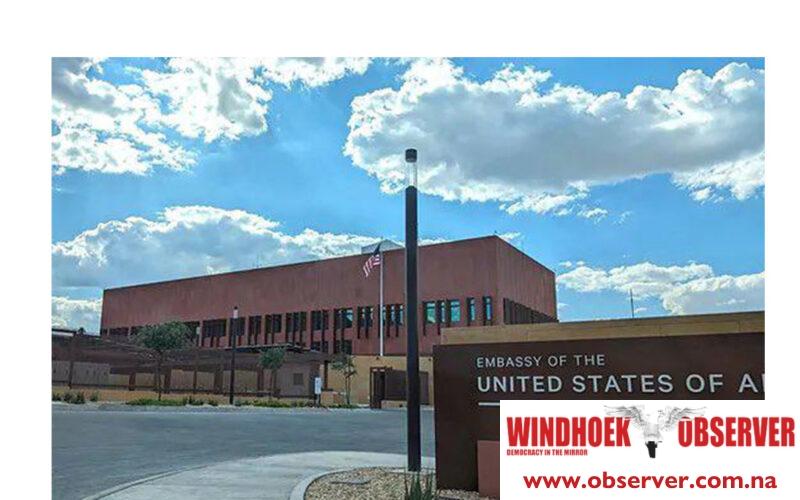Justicia Shipena
International relations analyst Marius Kudumo has warned that Namibia should not take comfort in its current exemption from the latest U.S. presidential travel ban.
Kudumo said the country should not celebrate its exclusion, as the global landscape remains unpredictable.
According to a statement issued on Wednesday by the U.S. Embassy in Windhoek, Namibia is not included in the list of 12 countries affected by the new U.S. travel ban.
“You can’t celebrate that you are not on that list because you are not sure whether you will be on that list one day or not,” he said.
Kudumo said if Namibia were to be added in the future, it would severely impact sectors such as tourism and education.
“If Namibia is on the list, it’s not good for Namibia from the perspective of the hospitality industry, as well as from the perspective of education. You know that there are many Namibians who travel to the United States for their studies and so on,” he said.
He questioned the effectiveness of travel bans in addressing global security challenges and stressed the interconnected nature of the world.
“In a global and interconnected world, despite the issues of security, banning countries is not the best option for addressing global challenges. Global security cannot be addressed by one country. It is supposed to be addressed by the whole world,” Kudumo said.
He told the Windhoek Observer that such measures undermine efforts to promote cross-cultural understanding and cooperation.
“You want people to learn from different cultures. That’s why globalisation is there,” he said.
To prepare for possible future bans, Kudumo urged countries like Namibia to work on self-reliance and strategic planning.
“Despite the world being interconnected, countries must also work on self-reliance. That if things like that happen, it doesn’t negatively affect you to the extent of not being prepared for it to happen,” he said.
He advised Namibia to broaden its tourism and education partnerships.
“For example, in terms of tourism, it means that you don’t rely on only your traditional tourists. You must actually explore new markets. The same with education,” Kudumo said.
He added that international relations are fluid and uncertain.
“You can’t describe it and predict it with certainty. That’s why you must always be prepared. If this happens, what will be the alternative for me?” he said.
No Visa Change for Namibians
The U.S. Embassy in Windhoek confirmed that there have been no changes to visa eligibility for Namibians.
“We underscore that Namibia is not included in this proclamation, and there have been no changes to visa eligibility for Namibian nationals,” said Rachelle Duck, the acting public affairs officer at the U.S. Embassy.
The clarification follows a proclamation by U.S. President Donald Trump this week, which blocks entry to citizens of 12 countries over national security and public safety concerns.
The ban affects nationals from Afghanistan, Myanmar, Chad, the Democratic Republic of Congo, Equatorial Guinea, Eritrea, Haiti, Iran, Libya, Somalia, Sudan, and Yemen. The restrictions apply regardless of travel purpose, unless the U.S. State Department deems the visit to be in the national interest.
In addition, people from Burundi, Cuba, Laos, Sierra Leone, Togo, Turkmenistan, and Venezuela will face partial restrictions.
Visa processing will involve stricter checks and vary by case.
While wealthy businesspeople might gain entry, students and tourists may encounter more challenges.
Nationals from countries that are banned will not be able to enter the U.S. for business, study, or family visits since 9 June 2025, unless they qualify for an exemption.
The ban is expected to have economic effects, especially on countries like Haiti and Yemen.
The embassy also addressed confusion around the U.S. travel advisory and visa updates for Namibia.
Duck said the Level 2 Travel Advisory, issued on December 23, 2024, advises travellers to “exercise increased caution” due to health and crime concerns.
She said the advisory is reviewed yearly, and Namibia’s status has not changed since 2023.
She added that Level 2 is common and applies to countries like the UK, France, and Germany.
“It does not restrict travel or visa processing and is intended to help travellers make informed decisions. The United States values its people-to-people ties with Namibia,” she added. “Namibians who follow U.S. immigration rules continue to be welcomed as visitors, students, and business travellers,” Duck said.




